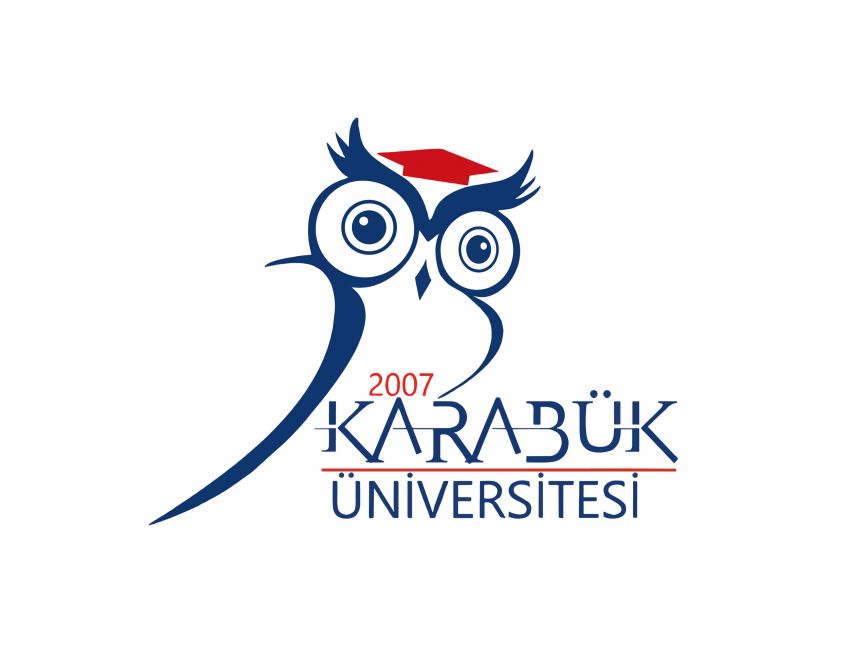Food Toxicology (Interdisciplinary)
Overview
<!-- wp:paragraph --> <p><strong>Food Toxicology (Interdisciplinary) at Karabük University: A Comprehensive Approach to Understanding the Impact of Chemicals in Food</strong></p> <!-- /wp:paragraph --> <!-- wp:paragraph --> <p>The <strong>Food Toxicology (Interdisciplinary)</strong> master's program at Karabük University provides an in-depth education in the study of harmful substances in food and their effects on human health. This interdisciplinary program combines knowledge from toxicology, food science, chemistry, biology, and public health to prepare students for addressing food safety challenges and ensuring the safety of the food supply. Students will develop the skills to assess the risks posed by foodborne toxins, additives, contaminants, and other potentially harmful substances, making them essential contributors to public health and food safety.</p> <!-- /wp:paragraph --> <!-- wp:heading {"level":3} --> <h3 class="wp-block-heading">Program Mission and Vision</h3> <!-- /wp:heading --> <!-- wp:paragraph --> <p>The mission of the <strong>Food Toxicology (Interdisciplinary)</strong> program is to equip students with the knowledge and skills necessary to identify, assess, and mitigate the risks associated with foodborne chemicals and toxins. The program’s vision is to be a leader in food safety education, contributing to the protection of public health and the promotion of safe food practices through research, policy development, and interdisciplinary collaboration.</p> <!-- /wp:paragraph --> <!-- wp:heading {"level":3} --> <h3 class="wp-block-heading">Curriculum Overview</h3> <!-- /wp:heading --> <!-- wp:paragraph --> <p>The <strong>Food Toxicology (Interdisciplinary)</strong> program at Karabük University offers a robust curriculum that integrates scientific disciplines and focuses on the identification, analysis, and prevention of toxicological risks in food. Students will explore the chemistry of foodborne toxins, regulatory standards, risk assessment methodologies, and the principles of food safety management.</p> <!-- /wp:paragraph --> <!-- wp:heading {"level":3} --> <h3 class="wp-block-heading">Core Foundations</h3> <!-- /wp:heading --> <!-- wp:paragraph --> <p><strong>Food Chemistry</strong>: Study the chemical composition of food, including naturally occurring toxins, food additives, and contaminants, to understand their potential effects on health.</p> <!-- /wp:paragraph --> <!-- wp:paragraph --> <p><strong>Toxicology and Toxicokinetics</strong>: Learn the principles of toxicology, focusing on the absorption, distribution, metabolism, and excretion of harmful substances in the body, as well as the dose-response relationship.</p> <!-- /wp:paragraph --> <!-- wp:paragraph --> <p><strong>Foodborne Diseases and Pathogens</strong>: Understand the microbiological and toxicological aspects of foodborne diseases, including the identification of pathogens and their effects on human health.</p> <!-- /wp:paragraph --> <!-- wp:paragraph --> <p><strong>Risk Assessment and Management</strong>: Study the methods and tools used to assess the risks of foodborne chemicals, including risk evaluation, exposure assessment, and risk management strategies.</p> <!-- /wp:paragraph --> <!-- wp:paragraph --> <p><strong>Food Safety Regulations and Standards</strong>: Examine the regulatory frameworks and standards that govern food safety, including international guidelines, national policies, and industry practices.</p> <!-- /wp:paragraph --> <!-- wp:paragraph --> <p><strong>Biochemical and Molecular Toxicology</strong>: Gain insight into the biochemical mechanisms underlying the toxic effects of chemicals, with a focus on molecular interactions, cellular damage, and genetic toxicity.</p> <!-- /wp:paragraph --> <!-- wp:paragraph --> <p><strong>Environmental Toxicology</strong>: Learn how environmental pollutants, such as pesticides, heavy metals, and industrial chemicals, affect food safety and human health.</p> <!-- /wp:paragraph --> <!-- wp:paragraph --> <p><strong>Nutritional Toxicology</strong>: Study the impact of specific nutrients, food additives, and contaminants on human nutrition, metabolism, and overall health.</p> <!-- /wp:paragraph --> <!-- wp:paragraph --> <p><strong>Analytical Techniques in Food Toxicology</strong>: Develop expertise in the laboratory techniques used to detect and quantify foodborne toxins, including chromatography, mass spectrometry, and molecular biology methods.</p> <!-- /wp:paragraph --> <!-- wp:heading {"level":3} --> <h3 class="wp-block-heading">Specialized Topics in Food Toxicology</h3> <!-- /wp:heading --> <!-- wp:paragraph --> <p><strong>Pesticide Residues in Food</strong>: Learn about the sources of pesticide contamination in food, the toxicological effects of pesticide residues, and the regulatory measures to limit exposure.</p> <!-- /wp:paragraph --> <!-- wp:paragraph --> <p><strong>Food Additives and Preservatives</strong>: Study the safety and potential health risks associated with the use of food additives and preservatives, including colorants, flavor enhancers, and stabilizers.</p> <!-- /wp:paragraph --> <!-- wp:paragraph --> <p><strong>Heavy Metals in Food</strong>: Investigate the presence of heavy metals such as lead, mercury, and cadmium in food, their toxicological effects, and strategies to mitigate exposure.</p> <!-- /wp:paragraph --> <!-- wp:paragraph --> <p><strong>Mycotoxins and Fungal Contamination</strong>: Study the impact of mycotoxins, toxic compounds produced by molds and fungi, on food safety and human health.</p> <!-- /wp:paragraph --> <!-- wp:paragraph --> <p><strong>Emerging Contaminants in Food</strong>: Explore the risks posed by emerging food contaminants, such as nanomaterials, endocrine-disrupting chemicals, and pharmaceutical residues.</p> <!-- /wp:paragraph --> <!-- wp:paragraph --> <p><strong>Food Toxicology and Public Health</strong>: Understand the broader implications of food toxicology for public health, including the role of education, policy development, and community health initiatives.</p> <!-- /wp:paragraph --> <!-- wp:paragraph --> <p><strong>Food Fraud and Safety</strong>: Examine the toxicological implications of food fraud, including the adulteration of food products with harmful substances.</p> <!-- /wp:paragraph --> <!-- wp:heading {"level":3} --> <h3 class="wp-block-heading">Practical Applications</h3> <!-- /wp:heading --> <!-- wp:paragraph --> <p><strong>Laboratory Work and Analytical Training</strong>: Students will gain hands-on experience in food toxicology laboratories, learning the techniques for detecting and analyzing harmful substances in food samples.</p> <!-- /wp:paragraph --> <!-- wp:paragraph --> <p><strong>Case Studies and Research Projects</strong>: Engage in case studies and research projects that focus on real-world issues in food safety, such as foodborne illness outbreaks, chemical contamination events, or emerging toxins in the food supply.</p> <!-- /wp:paragraph --> <!-- wp:paragraph --> <p><strong>Internships and Industry Collaborations</strong>: Participate in internships with food safety agencies, regulatory bodies, food production companies, or research institutes to gain practical experience and develop professional networks.</p> <!-- /wp:paragraph --> <!-- wp:heading {"level":3} --> <h3 class="wp-block-heading">Emerging Trends in Food Toxicology</h3> <!-- /wp:heading --> <!-- wp:paragraph --> <p><strong>Nanotechnology in Food Safety</strong>: Study the potential risks and benefits of nanotechnology in food packaging, additives, and delivery systems, including its impact on food safety and toxicity.</p> <!-- /wp:paragraph --> <!-- wp:paragraph --> <p><strong>Biotechnology and Food Safety</strong>: Explore the use of genetic modification, gene editing, and other biotechnological advancements in food production, and their potential implications for food safety and human health.</p> <!-- /wp:paragraph --> <!-- wp:paragraph --> <p><strong>Sustainable Food Production and Toxicology</strong>: Investigate the role of sustainable agricultural practices in reducing chemical contamination in the food supply and promoting healthier food systems.</p> <!-- /wp:paragraph --> <!-- wp:paragraph --> <p><strong>Food Fraud Detection Technologies</strong>: Learn about new technologies and methods being developed to detect food fraud and adulteration, which can pose toxicological risks to consumers.</p> <!-- /wp:paragraph --> <!-- wp:paragraph --> <p><strong>Climate Change and Food Toxicology</strong>: Explore the effects of climate change on food safety, including the potential for increased contamination and the development of new toxicological risks in the food supply.</p> <!-- /wp:paragraph --> <!-- wp:heading {"level":3} --> <h3 class="wp-block-heading">Career Opportunities</h3> <!-- /wp:heading --> <!-- wp:paragraph --> <p>Graduates of the <strong>Food Toxicology (Interdisciplinary)</strong> program are well-prepared for careers in a variety of sectors, including:</p> <!-- /wp:paragraph --> <!-- wp:list --> <ul class="wp-block-list"><!-- wp:list-item --> <li><strong>Food Toxicologist</strong>: Conduct research and analysis on foodborne toxins, contaminants, and additives, working in research labs, government agencies, or private companies.</li> <!-- /wp:list-item --> <!-- wp:list-item --> <li><strong>Regulatory Affairs Specialist</strong>: Work with governmental and non-governmental organizations to ensure compliance with food safety regulations and guidelines.</li> <!-- /wp:list-item --> <!-- wp:list-item --> <li><strong>Risk Assessor</strong>: Evaluate the health risks associated with foodborne chemicals and provide recommendations for mitigation in food safety management systems.</li> <!-- /wp:list-item --> <!-- wp:list-item --> <li><strong>Public Health Expert</strong>: Contribute to food safety policy development, public health initiatives, and education to improve food safety practices and reduce toxicological risks.</li> <!-- /wp:list-item --> <!-- wp:list-item --> <li><strong>Food Safety Consultant</strong>: Advise food producers, distributors, and restaurants on how to minimize the risks associated with food contamination and ensure compliance with food safety standards.</li> <!-- /wp:list-item --> <!-- wp:list-item --> <li><strong>Food Industry Professional</strong>: Work in the food production, processing, or packaging industry to ensure the safety and quality of food products and minimize toxicological risks.</li> <!-- /wp:list-item --></ul> <!-- /wp:list --> <!-- wp:heading {"level":3} --> <h3 class="wp-block-heading">Why Choose Karabük University?</h3> <!-- /wp:heading --> <!-- wp:list --> <ul class="wp-block-list"><!-- wp:list-item --> <li><strong>Interdisciplinary Approach</strong>: The program integrates knowledge from diverse scientific fields, providing students with a well-rounded understanding of food toxicology.</li> <!-- /wp:list-item --> <!-- wp:list-item --> <li><strong>Experienced Faculty</strong>: Learn from faculty members with expertise in food science, toxicology, chemistry, and public health, who bring both academic knowledge and practical experience to the classroom.</li> <!-- /wp:list-item --> <!-- wp:list-item --> <li><strong>State-of-the-Art Laboratories</strong>: Gain hands-on experience in advanced analytical techniques and laboratory practices using modern equipment and technologies.</li> <!-- /wp:list-item --> <!-- wp:list-item --> <li><strong>Research Opportunities</strong>: Participate in cutting-edge research projects aimed at advancing the field of food toxicology and contributing to global food safety efforts.</li> <!-- /wp:list-item --></ul> <!-- /wp:list --> <!-- wp:heading {"level":3} --> <h3 class="wp-block-heading">Shaping the Future of Food Safety</h3> <!-- /wp:heading --> <!-- wp:paragraph --> <p>Karabük University’s <strong>Food Toxicology (Interdisciplinary)</strong> master’s program is designed to prepare students for the growing field of food safety, equipping them with the expertise needed to address the challenges posed by foodborne toxins, additives, and contaminants. With a focus on interdisciplinary education, research, and practical experience, the program provides students with the tools to make meaningful contributions to food safety and public health. If you are passionate about improving the safety of our food systems and protecting human health, Karabük University offers an excellent foundation for your career in food toxicology.</p> <!-- /wp:paragraph -->
Program Description
The Food Toxicology (Interdisciplinary) program at Karabuk University offers a comprehensive curriculum designed to prepare students for successful careers in this dynamic field. The program combines theoretical knowledge with practical skills, ensuring graduates are ready for the challenges of the industry.
The program is taught by experienced faculty members who are leaders in their respective fields, providing students with insights into current industry practices and future trends.
Curriculum Highlights
- Advanced Research Methods: Learn cutting-edge research techniques and methodologies.
- Industry Analysis: Explore current industry trends and develop analytical skills.
- Leadership and Management: Develop essential leadership skills for managing teams and projects.
- Innovation and Entrepreneurship: Cultivate creative thinking and entrepreneurial mindset.
- Digital Transformation: Understand how technology is reshaping industries and businesses.
- Sustainable Development: Explore environmentally sustainable practices and their implementation.
- Global Markets: Study international market dynamics and global business operations.
- Technology Integration: Learn to leverage technology for improved business outcomes.
Requirements:
- Bachelor's degree (for Master's programs) or equivalent qualifications.
- Proven English language proficiency (IELTS 6.5+ or equivalent).
- Complete transcripts from previous education.
- A compelling letter of motivation explaining your interest in the program.
- Two letters of recommendation from academic or professional references.
- Valid passport with appropriate visa status or eligibility.
Benefits:
- World-class faculty with extensive industry experience.
- Modern campus facilities and cutting-edge learning environments.
- Strong industry partnerships providing networking opportunities.
- Internship opportunities with leading companies in the field.
- Comprehensive career services including job placement assistance.
- Access to a global alumni network for lifelong professional connections.
Begin your educational journey today.
Apply now and take the first step towards your future.





